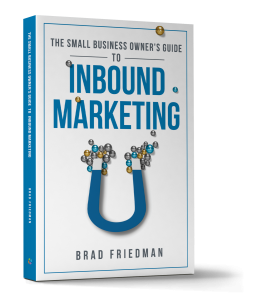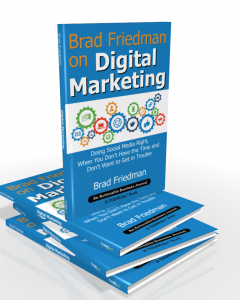 Newsweek magazine calls Wael Ghonim “The Facebook Freedom Fighter.” Ghonim and others used social media to spur Egyptians to action and begin the Arab Revolution of 2011 bringing unrest to the entire region. Yet, people continue to believe “Social Media is a fad I don’t have the time for.” The actions of Ghonim and others, along with the outcome of their actions should be looked at as an example to be followed by all types of businesses in the United States and abroad.
Newsweek magazine calls Wael Ghonim “The Facebook Freedom Fighter.” Ghonim and others used social media to spur Egyptians to action and begin the Arab Revolution of 2011 bringing unrest to the entire region. Yet, people continue to believe “Social Media is a fad I don’t have the time for.” The actions of Ghonim and others, along with the outcome of their actions should be looked at as an example to be followed by all types of businesses in the United States and abroad.
THE FACEBOOK PAGE THAT TOPPLED MUBARAK
Wael Ghonim, Google’s head of marketing in the Middle East and North Africa, is a 30 year-old father of two. He obtained a master’s degree in marketing and finance from American University in Cairo. He began working for Google in 2008, was promoted a year later, and moved with his family to an affluent suburb in Dubai to assume his position as the head of marketing.
In the spring of 2010, Ghonim volunteered to run the Facebook fan page of Mohamed ElBaradei, the Egyptian Nobel Prize winner who was becoming a key opposition leader. Though Ghonim was a “techie” at heart, it was his marketing background that helped morph him into one of Egypt’s most important cyberactivists.
ElBaradei’s Facebook page promoted democratic reform and Ghonim worked to grow his fan base which increased at a rapid pace. He interacted with its fans, often surveying them and pushing ideas like crowdsourced video Q&As. Ghonim believed Facebook was an ideal revolutionary tool. Once you “Liked” the page, whatever Ghonim wrote would appear on your wall, preventing the government from blocking it later.
Khaled Said, who posted a video on the Internet showing the police absconding with pot from a drug bust, was assaulted by local police at an Internet café, dragged outside and beaten to death. Photos of his corpse went viral and Ghonim started a second Facebook page called “We Are All Khaled Said.” This page, with its constant stream of photos, videos and news, quickly became an important force in a campaign against police brutality in Egypt. Ghonim’s interactive, engaging style turned the page into one of Egypt’s largest activist sites.
Before long, the page had over 350,000 fans who, on January 14, 2011 were invited to a protest in Egypt on January 25. All they had to do was click “Yes,” “No,” or “Maybe” to let others know if they planned to attend. In less than three days, more than 50,000 people answered “Yes.” Calling upon his word-of-mouth-marketing skills, Ghonim implored these Facebook fans to spread the word of the protest to others. On Tuesday January 25, hundreds of thousands of people joined in the first demonstration that led to the downfall of Hosni Mubarak, the fourth president of Egypt who served from 1981 to 2011.
THE EGYPTIZATION OF BUSINESS
There are many lessons to be learned from Ghonim’s demonstration of the power of social media. First and foremost, we must stop believing social media is a fad. Stop believing you don’t need to invest in social marketing and if you just wait it out, it will be gone. It won’t. Social marketing is here to stay. Social marketing is no longer “The Future of Marketing.” The future is now! Social Media is an ongoing, fluid, real-time marketplace for information, referrals, collaboration, and business deals. Business, of all types, that don’t take advantage of social media now, may not be in business five years from now. Author Erik Qualman says, “We don’t have a choice on whether we DO social media, the question is how well we DO it.”
- Over 50% of the world’s population is under 30 years old.
- 96% of Millennials have joined a social network.
- Facebook tops Google for weekly traffic in the U.S.
- Social Media has overtaken pornography as the #1 activity on the web.
- 1 out of 8 couples married in the U.S. met via social media.
- A U.S. Department of Education study revealed that online students out performed those receiving face-to-face instruction.
- 80% of companies use social media for recruitment.
- 95% of those companies are using the social network LinkedIn.
- Ashton Kutcher and Brittney Spears have more Twitter followers than the entire population of Sweden, Israel, Switzerland, Ireland, Norway and Panama.
- 50% of the mobile Internet traffic in the UK is for Facebook.
- 25% of search results for the World’s Top 20 largest brands are links to user-generated content.
- 34% of bloggers post opinions about products & brands.
- 78% of consumers trust peer recommendations.
- Only 14% trust advertisements.
- Only 18% of traditional TV campaigns generate positive ROI.
- 90% of people skip ads via TiVo/DVR.
- 60 million status updates happen on Facebook daily.*
Imagine what all this means for bad customer experiences. Imagine what this could mean for the introduction of a new product, the announcement of a Supreme Court case an attorney in your office just won, or spreading news to your clients of the new Tax Reform Act just passed by Congress.
Ghonim capitalized on his interactive style to garner hundreds of thousands of fans and give them a call to action, to which they responded in great numbers with incredible results. Are you doing the same with your company’s Facebook page, or your LinkedIn profile? Are you using a blog on your law firm’s website to share information and interact with clients, prospects and referral sources? Is your financial services company taking advantage of social media to recruit qualified planners to come work with them?
Ghonim’s use of social media to light a fire under hundreds of thousands of people and spur them to action is an example wise business people ought to follow. If not, there is a real question as to how much longer they will be in business.
*This data is from the video Social Media Revolution 2(Refresh). Source Data listed here: http://www.socialnomics.com/ In association with HULT International Business School.












